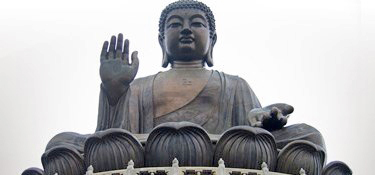Suffering and Its Causes
 This website seeks to present Buddhist spirituality as timeless principles of living taught by the Buddha over 2,500 years ago. From the reality of experience, these teachings remain universally relevant. An underlying theme of the website is how to become free from all forms of suffering.
This website seeks to present Buddhist spirituality as timeless principles of living taught by the Buddha over 2,500 years ago. From the reality of experience, these teachings remain universally relevant. An underlying theme of the website is how to become free from all forms of suffering.
As a Western lay Buddhist with goodwill toward all beings in all worlds, I have created this website in my love for the Dharma and a vision of a way of life inspired by the universal Four Noble Truths. All articles and charts may be freely downloaded (either in PDF format or as a Microsoft Word document), as well as photos (personally taken, unless otherwise credited).
Buddhism communicates its vision of existence through three great images:
Perfect Vision is a vision, first of all, of our actual present state of bondage to conditioned existence as represented by the Wheel of Life. It is also a vision of our potential future state of Enlightenment as represented by the Buddha, or the mandala of Buddhas, or a Pure Land. Finally it is a vision of the path or way leading from the one to the other – a vision, if you like, of the whole future course of evolution (Sangharakshita, The Buddha’s Noble Eightfold Path, revised edition, 2007).
In other words, a way to wisdom, compassion, and freedom from suffering has been made available for all to personally investigate.
Overall, the approach toward Buddhism on this website is well expressed in the following words:
Fundamentally, Buddhism is the teachings of the Buddha, which at their core have their own consistent character. Even though there are differences between Mahayana and Hinayana, the Northern and Southern transmissions, esoteric and exoteric teachings, and other such differences, we can still say, ‘Differences can be found within what is the same, and similarities can be found amid what is different.’ Different types of Buddhism should be approached with a spirit of mutual respect and harmony, in which everyone is honoured and appreciated. Only in this way can the continued survival of the true Dharma be assured, so that Buddhism will not fade away as it has in India. [Chuang, Venerable Tzu. Faxiang: A Buddhist Practitioner’s Encyclopedia. Translated by Robert Smitheram. Los Angeles, California: Buddha’s Light Publishing, 2012. (Page 126.)]
- For a PDF copy of an overview table, click on The Middle Path to Enlightenment – Expanded Table
- For an MS Word copy of the table, click on The Middle Path to Enlightenment – Expanded Table
“Let me respectfully remind you, Life and Death are of Supreme Importance. Time swiftly passes by and opportunity is lost. Each of us should strive to awaken, Awaken! Take heed; do not squander your life.” (The Chant of the Jukido [Timekeeper] at the Evening Zazen)
- Photo Credit for Buddha image: Intellimon Ltd.
- Photo credit (header): Copyright HaPe07 (Hans-Peter at https://www.flickr.com/photos/hape_gera/)
